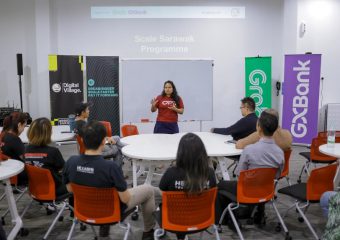In an article for the World Economic Forum, Digital Transformation Director for Schneider Electric Stefano Oliveri notes that one of the essential skills needed to tackle major global issues in a post COVID-19 world is futures literacy.
“It’s important because it is images of the future that drive our expectations, disappointments, and willingness to invest or change,” Mr Oliveri writes.
In other words, post COVID-19, futures literacy will become a necessity as the world faces countless of uncertainties, demanding organisations of every kind to find new and better ways of operating.
Since 2012, the United Nations Educational, Scientific and Cultural Organization (UNESCO) has been championing the concept of futures literacy through collaborations with local actors in over 20 countries, particularly in organising Futures Literacy Laboratories in schools and communities.
In December 2019, UNESCO held the first Global Futures Literacy Design Forumin Paris, which brought the general public together with leading futures literacy practitioners, designers, facilitators, teachers and researchers.
Referring to the area of human imagination, futures literacy can be defined as a skill or ability to use imagination to anticipate and create the future in various ways.
It is the ability that everyone can hone to create a desired future through improvisation, experimentation and invention.
UNESCO states that the goal of fostering futures literacy is to enable people to shape their own imaginations through the dreams and nightmares that arise out of the anticipatory assumptions they adopt in order to describe the future.
Through imagination, being futures literate means knowing that there are different sets of assumptions that produce various forms of imaginary futures and that these diverse kinds of futures change what is perceptible and actionable.
Futures literacy is a skill-set that enables people to better understand the role that the future plays, and develop the tools and methods to use the future to solve a particular challenge.
As we learn how to cope with the effects of COVID-19, we need to hone the skills that will allow us to better imagine and make sense of the future that we might face.
This is also a skill that businesses and organisations need to cope with new challenges and adequately prepare themselves to take on future ones.
Apart from exercising our imagination, futures literacy helps us to overcome fears and antipathy towards the uncertainty by better understanding the way the world works.
Imagining the future is an opportunity for us to comprehend the formulation of desires towards our personal lives and careers.
The better we can become at understanding diverse explanations of and methods for imagining the future, the less number of reasons there will be to fear the future.
Therefore, we can harness potential opportunities and make sense of changes that are bound to affect us.




